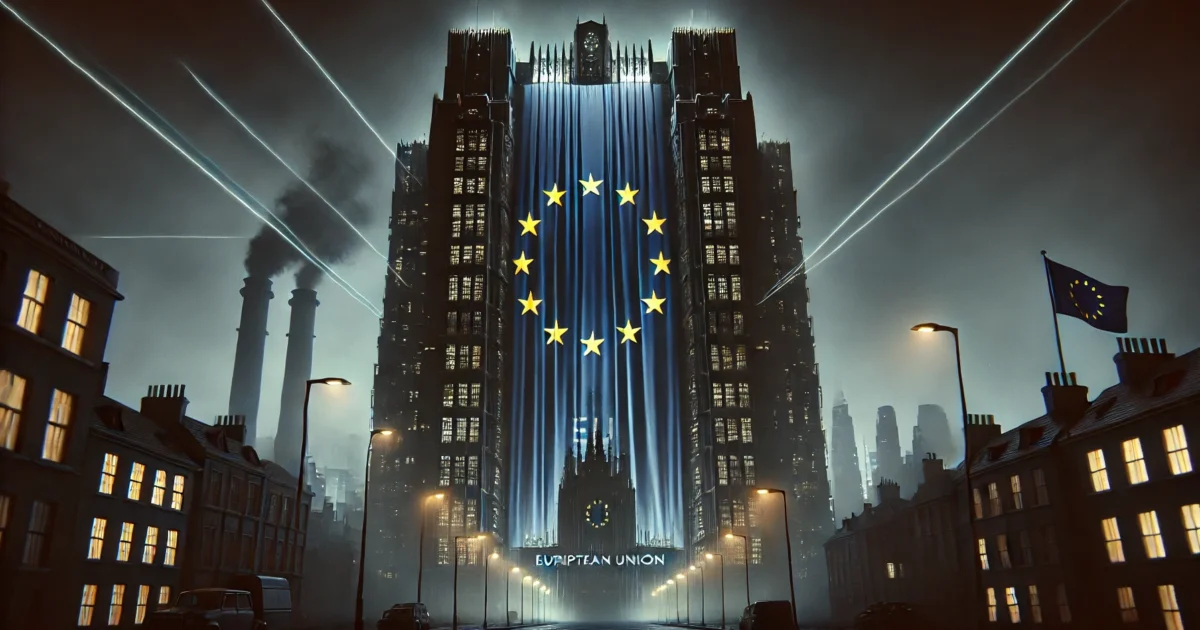from RAIR Foundation:

In a chilling move that reads like a page from Orwell’s 1984, the European Union is formalizing its role as a gatekeeper of information with the creation of an “Information Sharing and Analysis Center” under the European External Action Service (EEAS). The declared purpose? To combat so-called “disinformation” campaigns from foreign actors like Russia and China. But make no mistake—this is not about protecting truth or democracy. It is a brazen attempt by the EU’s globalist elite to control opposition to narratives, silence dissent, and reshape public opinion to align with their own agenda.
TRUTH LIVES on at https://sgtreport.tv/
A Veil of Legitimacy for Authoritarian Censorship
The EU’s foreign policy chief, Josep Borrell cloaked the initiative in noble rhetoric, declaring that disinformation undermines democracy by distorting public perception. According to Borrell, democracy cannot function if citizens lack access to “accurate” information—defined, of course, by the very institutions that stand to benefit most from this censorship apparatus.
Under the guise of protecting democracy, the EU has positioned itself as the arbiter of truth. This centralized platform seeks to monitor, analyze, and counter “manipulated” information in real-time, coordinating with NGOs, member states, and cybersecurity agencies. In reality, this infrastructure risks becoming a weapon to stifle independent journalism, dissenting voices, and any narrative that challenges the EU’s policy positions.
The Weaponization of Disinformation Allegations
Borrell’s speech paints a vivid picture of a world in chaos, where Russian and Chinese actors are waging an information war to destabilize democracies. This may also be true. But the rhetoric of an “existential threat” serves a dual purpose: it justifies sweeping interventions in the media landscape while deflecting attention from the EU’s own failures. From rising inflation and energy crises to public discontent over Ukraine policies, blaming “foreign manipulation” conveniently shifts accountability away from Brussels.
What’s more, the EU has already banned Russian state media outlets like RT and Sputnik under the pretense of combating propaganda. These actions, far from fostering transparency, represent a dangerous precedent: censorship masquerading as protection.
A New Wave of Digital Totalitarianism
Borrell’s acknowledgment that disinformation campaigns predate the Ukraine war is particularly revealing. He links these efforts to earlier narratives, such as skepticism during the COVID-19 pandemic. By framing the “struggle for narrative” as an ongoing battle, the EU justifies ever-expanding surveillance and regulation of online platforms and pressuring companies like Twitter to align with its goals. This centralization of control over digital spaces threatens to erode the freedoms of expression and access to diverse viewpoints.
The Real Targets: You and Me
While the EU claims to combat “foreign actors,” its focus on “toxicity” in information opens the door to policing domestic dissent. The language of combating “biased choices” and ensuring the “quality of information” is a thinly veiled justification for narrative engineering. If information contrary to the EU’s worldview is deemed “toxic,” how long before ordinary citizens become the targets of censorship? How long before critics of EU policies are labeled agents of “disinformation”?
Read More @ RAIRFoundation.com



 BREAKING: Press Secretary Karoline Leavitt announces a MASSIVE discovery has been made by DOGE and will be announced very soon…
BREAKING: Press Secretary Karoline Leavitt announces a MASSIVE discovery has been made by DOGE and will be announced very soon…